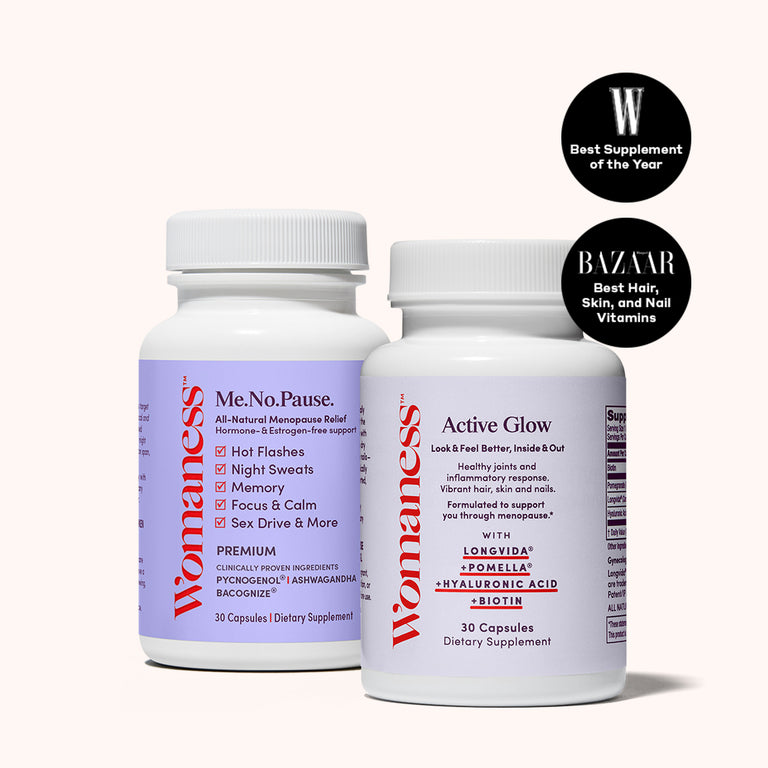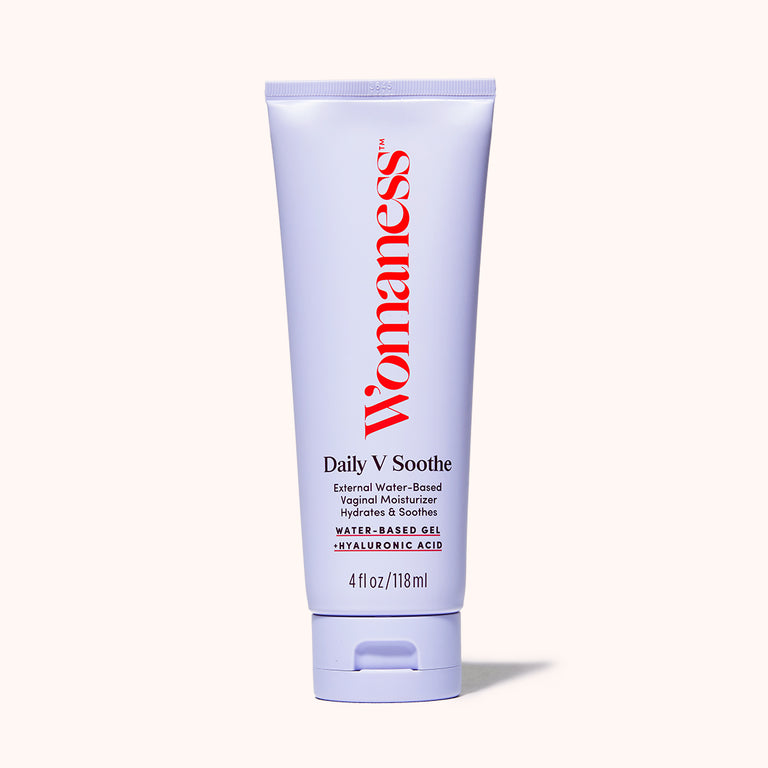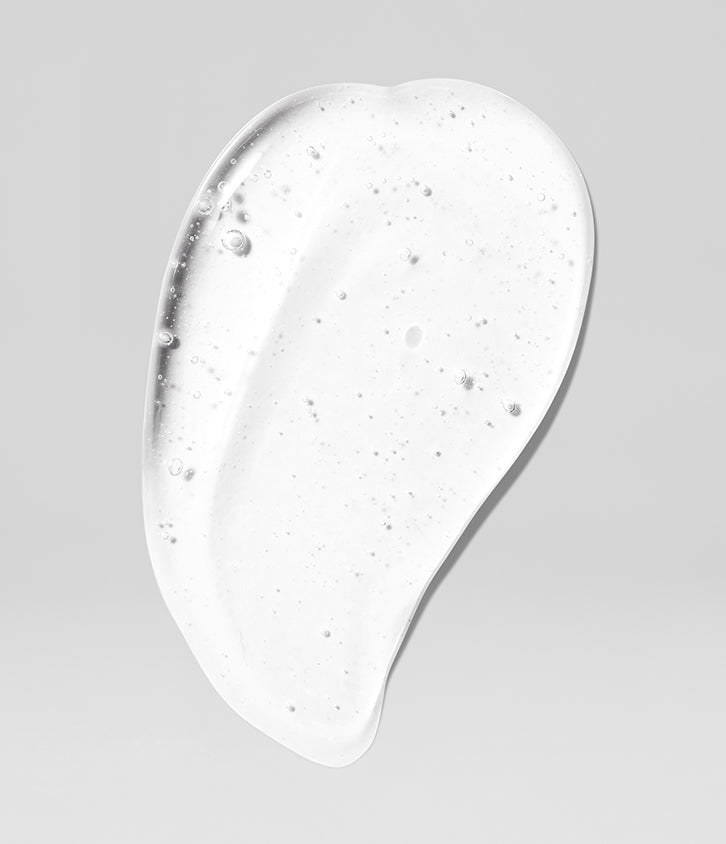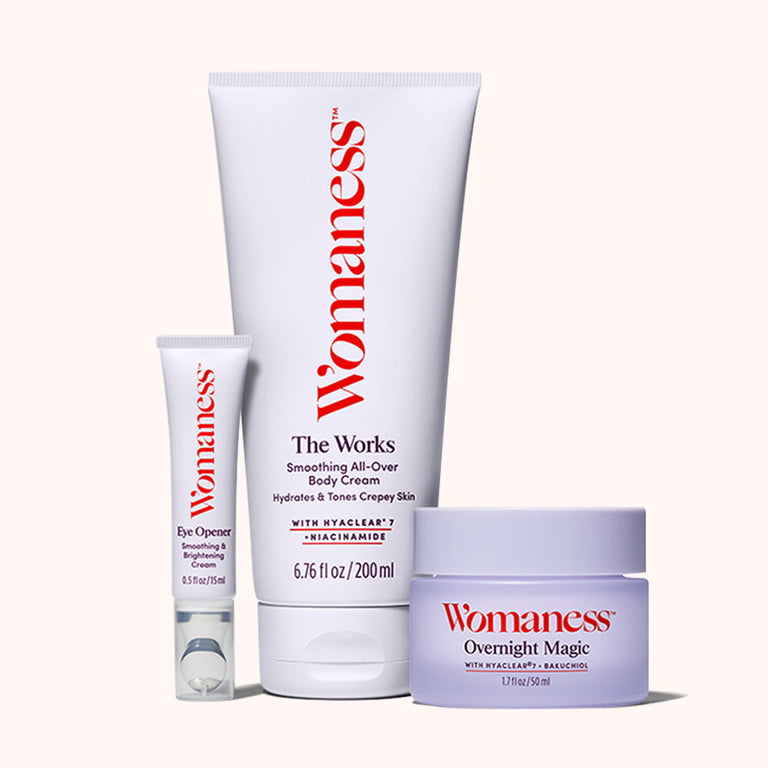By: Julia Walker RN, BSN 4-Minute Read

Julia Walker, RN, BSN is a women's health nurse, writer, and member of the perry team. Perry connects and supports perimenopause warriors in a safe space—to build friendships, learn, and laugh. The moment you think "WTF, could this be menopause?"—join our sisterhood!
While a plate of greens or extra-lean protein can’t whisk away menopause’s menacing symptoms, a strategic diet focusing on the right foods (while eliminating the baddies) can be part of an effective plan to help you manage hot flashes, brain fog, and other delightful side effects. And unlike other treatments such as hormone replacement therapy, localized hormone treatment, talk therapy, supplements, exercise, and alternative therapies—all of which can have varying results depending on the individual woman—making changes to the food you eat can have powerful, almost immediate effects during the throes of hormonal shifts. Below, our guide to foods you should add to your diet...and others you should toss out.
Eat This
Healthy Fats—We tend to equate fat with “bad.” And there are certain types of fats that are harmful to our bodies. However, fat is an essential part of our physical makeup, and a healthy body needs fat from our diet. Incorporate unsaturated fats into your diet like avocados, peanut butter, vegetable oils (sunflower, canola, and olive oil), nuts and seeds, and fatty fish such as salmon.
Dairy Products (In Moderation*)—Women are susceptible to osteoporosis and bone fractures after menopause because estrogen levels decline. Our bodies have a more challenging time building and maintaining bone in postmenopause, and it gets increasingly difficult to absorb and synthesize vitamin D and calcium. So it’s a great idea for perimenopausal women to increase their intake of food rich in vitamin D and calcium and to take a supplement to support their bone health.
*Remember: Many dairy products, such as certain yogurt brands, are high in sugars, so you may need to limit your dairy intake, especially if you struggle with weight gain, migraine headaches, and metabolic syndrome. Additionally, many people develop lactose intolerance, making it harder to digest dairy products. Too much dairy may cause you to have an upset stomach and may inflame your intestinal lining. If dairy is not an option, you can get vitamin D and calcium in some fortified cereals, egg yolks, red meat, and fatty fish (like salmon).
"At least half of your plate should be filled with fruits and vegetables at mealtimes."
Whole Grains—A diet that contains whole grains has been shown to reduce your risk for heart disease, diabetes, premature death, and some cancers. Compared to refined grains, whole grains are also better for your gut health, which can be a source of aggravation for many perimenopausal women. Avoid white bread and sugary cereals when possible and instead get some whole oats, whole wheat, buckwheat, barley, spelt, and quinoa onto your plate.
Fruits and Vegetables—This is an obvious one but it bears repeating. At least half of your plate should be filled with fruits and vegetables at mealtimes because these foods are packed with necessary vitamins, minerals, antioxidants, and fiber that keep your body healthy and happy. Plus, they’re great at staving off weight gain. One more reason: A large study that came out of the Women's Health Initiative found that women who ate many fresh fruits and vegetables had fewer hot flashes.
Proteins—Women in perimenopause should begin to increase their protein intake as their muscle mass declines. Try adding meat such as chicken, turkey, fish, and some red meats for added protein. Aside from meat, protein also comes in other forms, including eggs, legumes, and some dairy products. You can also add protein powders like collagen to improve bone density and build muscle.
"Some foods can act as weak estrogens in your body, which may help naturally boost your estrogen levels."
Phytoestrogen-Containing Foods—Some foods can act as weak estrogens in your body, which may help naturally boost your estrogen levels. It’s not a bad idea to increase your intake of these foods when you enter menopause to help combat some symptoms like hot flashes. It’s worth keeping in mind that the evidence for using phytoestrogens alone to combat menopause symptoms is not strong. However, these menopause foods contain key nutrients necessary for overall health. Thus, it is likely not harmful to incorporate them in your diet unless you have a condition like estrogen-dependent breast cancer, in which you would want to check with your oncologist first. Phytoestrogen-containing foods include soybeans, chickpeas, lentils, grapes, plums, berries, green tea, black tea, peanuts, and flaxseeds.
Remember Your Essential Nutrients—These are the things your body cannot build on its own, so they must come from your diet. Along with carbohydrates, fats, protein, vitamins, minerals, and water, you will want to boost your omega-3 intake, which can improve thyroid function and decrease your risk for diseases like Alzheimer's and cardiovascular disease.
Don't Eat This
Most of us know what we should avoid, so let's just cut to the chase. The following foods should be limited and avoided altogether to help improve menopause symptoms and avoid other complications like bloating, low energy, brain fog, and inflammation:
● Processed carbohydrates
● Foods with added sugars
● Alcohol
● Caffeine
● Foods high in sodium
● Fried foods
● Some spicy foods (these can exacerbate sleep disturbances like hot flashes)
Navigating the Grocery Store
You will find that many foods you should avoid are in the inner aisles of your grocery store. Thus, most nutritionists recommend you shop on the grocery store's perimeter, where you will find fresh produce, meat, fish, and dairy.
In most cases, your diet is not a cure-all when it comes to managing menopause symptoms. However, a healthy diet can help reduce the severity of many symptoms and improve health problems that may creep up in menopause and beyond, including heart disease, metabolic syndrome, and osteoporosis.
More Health & Wellness
7 Nutrients for Health Skin, Hair, and Nails in Menopause
6 Foods to Help You Beat Bloating
7 Changes to Make to Lose Weight in Menopause






